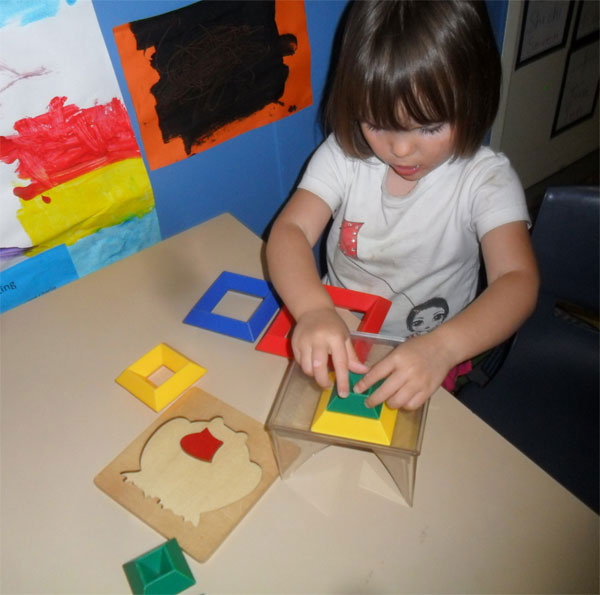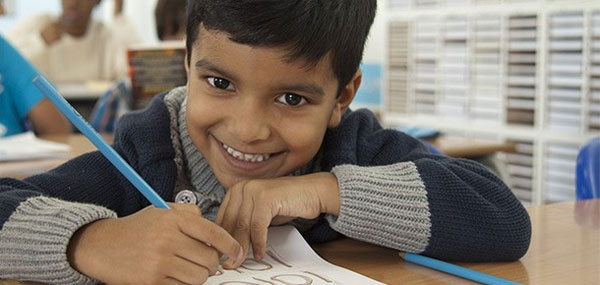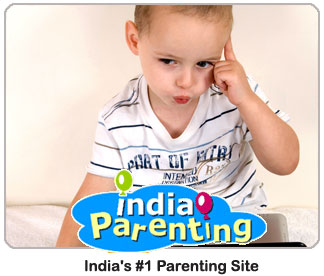Children get bored very easily, especially children in the age bracket of 1-3 years. Toddlers constantly look for something to keep them busy and they usually turn to you for instant entertainment. This can be a great opportunity for some parent-child bonding, so you should face the task of entertaining toddlers with enthusiasm. Here we list a few games that can be a lot of fun for both you and your child! In this articleToy Bricks or Lego SetsPainting or SketchingInteractive StorytellingCard GamesToy Bricks or Lego Sets All children love Lego sets or construction kits. This is because the bricks give them a world of choices when it comes to arrangement and they can build a variety of things. Add to this that the bricks are colourful and have different shapes and sizes. You should also join in and help him build something new. When you teach him some basic shapes and parts that he can build, he will go on to build something new with those parts. For example, if you teach him how to build a car, it will not be long before he builds a truck or even a train. Such toy brick sets are great for a childs mental development and it can be fun for you too! Painting or Sketching Give a child a box of crayons or sketch pens and he will go wild. Children love crayons because they are colourful and you can draw designs with them. But young children often sketch without any direction, just to see the colours and basic shapes. As a parent, you can sit down with your child and teach him how to draw an animal or object in a few easy steps. Children really love learning how to draw and can be engrossed with sketching for hours together. Teaching your child how to draw will also make him curious about how to improve his drawings, thus making him more observant. He will learn to mix colours properly and how to draw better, which is good for his mental development. As for you, it can be a real pleasure to watch your child draw better as time progresses! Interactive Story-telling Adults fondly remember all the stories that their parents or grandparents told them as a child. This is because these stories let their imagination run wild and was limitless entertainment for their young mind. And you can do the same for your child by creating a story with him. You can do this either by starting a story from scratch or by taking a colourful story-book and altering the plot. Read out loudly while your child listens, and you can also encourage your child to contribute to the story telling. Children can get quite excited and bring in a lot of humour and hilarious characters with their stories, thus making it very amusing for you! Card Games This is a relatively easy and fun game you can enjoy with your child. You will need a set of picture cards of animals or objects. What you can do is go through the cards and teach your child what each one of them is. After this, you can flash different cards at him and ask him to identify them. This is a great way of teaching young children to identify objects and is good for their memory as well. You can also have math cards where you can ask them basic addition or subtraction questions. Make sure you reward them amply when they succeed!
Children get bored very easily, especially children in the age bracket of 1-3 years. Toddlers constantly look for something to keep them busy and they usually turn to you for instant entertainment. This can be a great opportunity for some parent-child bonding, so you should face the task of entertaining toddlers with enthusiasm. Here we list a few
games that can be a lot of fun for both you and your child!
Toy Bricks or Lego Sets
All children love Lego sets or construction kits. This is because the bricks give them a world of choices when it comes to arrangement and they can build a variety of things. Add to this that the bricks are colourful and have different shapes and sizes. You should also join in and help him build something new. When you teach him some basic shapes and parts that he can build, he will go on to build something new with those parts. For example, if you teach him how to build a car, it will not be long before he builds a truck or even a train. Such toy brick sets are great for a child's mental development and it can be fun for you too!
Painting or Sketching
Give a child a box of crayons or sketch pens and he will go wild. Children love crayons because they are colourful and you can draw designs with them. But young children often sketch without any direction, just to see the colours and basic shapes. As a parent, you can sit down with your child and teach him how to draw an animal or object in a few easy steps. Children really love learning how to draw and can be engrossed with sketching for hours together.
Teaching your child how to draw will also make him curious about how to improve his drawings, thus making him more observant. He will learn to mix colours properly and how to draw better, which is good for his mental development. As for you, it can be a real pleasure to watch your child draw better as time progresses!
Interactive Story-telling
Adults fondly remember all the stories that their parents or grandparents told them as a child. This is because these stories let their imagination run wild and was limitless entertainment for their young mind. And you can do the same for your child by creating a
story with him. You can do this either by starting a story from scratch or by taking a colourful story-book and altering the plot.
Read out loudly while your child listens, and you can also encourage your child to contribute to the story telling. Children can get quite excited and bring in a lot of humour and hilarious characters with their stories, thus making it very amusing for you!
Card Games
This is a relatively easy and fun
game you can enjoy with your child. You will need a set of picture cards of animals or objects. What you can do is go through the cards and teach your child what each one of them is. After this, you can flash different cards at him and ask him to identify them. This is a great way of teaching young children to identify objects and is good for their memory as well. You can also have math cards where you can ask them basic addition or subtraction questions. Make sure you reward them amply when they succeed!

































